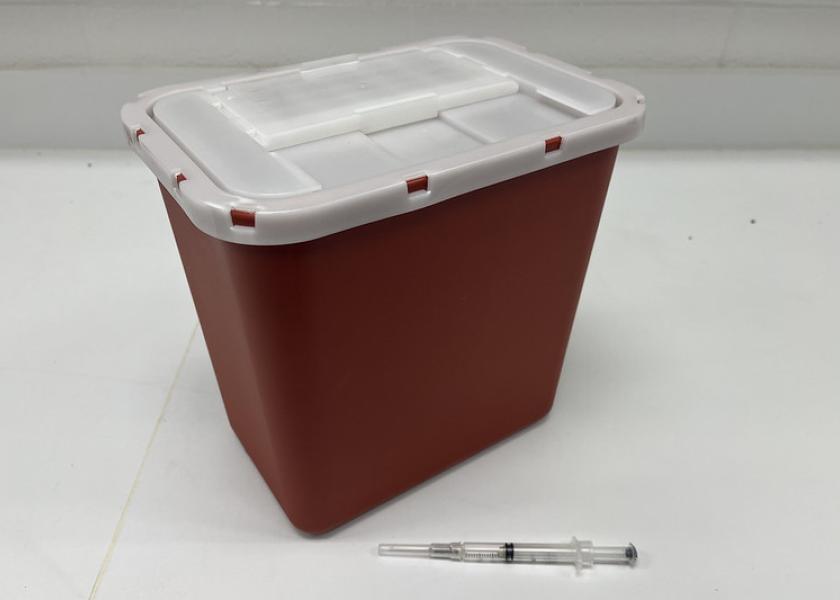How to Handle and Dispose of Sharps and Unused Vaccine Products

If you’ve ever reached into the knife drawer and gotten an unexpected poke from a sharp object that wasn’t stored properly, you know how easily it is to hurt yourself.
In much the same way, needles used to deliver animal products can also be a risk to humans if they are not handled properly, said the veterinary experts at the Kansas State University Beef Cattle Institute on a recent Cattle Chat podcast.
“Removing the needle from the syringe is the most common point where someone could get an inadvertent needle stick,” said K-State veterinarian Brian Lubbers. “For that reason, we recommend that if the needle is attached to a small plastic syringe that both are put in a sharps container for medical waste.”
The sharps container is where veterinarians place used objects including needles, blades, glass tubes and anything else that can puncture a person’s skin, said K-State veterinarian Brad White.
“A true sharps container has a lid on the top and companies will pick them up or you can talk to your local veterinarian or local hospital to see how they handle medical waste,” White said.
Lubbers also offered that folks can use a thick plastic gallon jug to make a sharps container.
“Put a small amount of bleach in the container and then fill it about three-quarters full (with disposable products) before taking it to the place that handles medical waste disposal,” Lubbers said.
He said there are also products on the market that can be added to the jugs to harden the materials so there isn’t a puncture risk and then the jug can be disposed of as regular waste.
If you must handle the needle, Lubbers advises using a tool to pull it from the syringe and to avoid recapping the needle.
“If you are using a needle with a reusable syringe, then use a pair of pliers to make sure there is an instrument between you and the needle. Don’t recap the needles because that is when the sticks happen,” Lubbers said.
The other issue that beef producers and veterinarians deal with on occasion is managing unused, expired vaccine or antibiotic drug products.
“Reach out to the manufacturer and see if the company will allow you to return them for disposal and perhaps get a partial credit,” Lubbers said, “It is important not to dump them out, especially antibiotics, because of what can be released into the environment.”
He said if producers don’t know how to reach the manufacturer, it is best to start with their veterinarian for guidance.
If the product has been completely used, then Lubbers said it can be disposed of as regular waste.
To hear the full discussion, listen to the Cattle Chat podcast online or through your preferred streaming platform.







